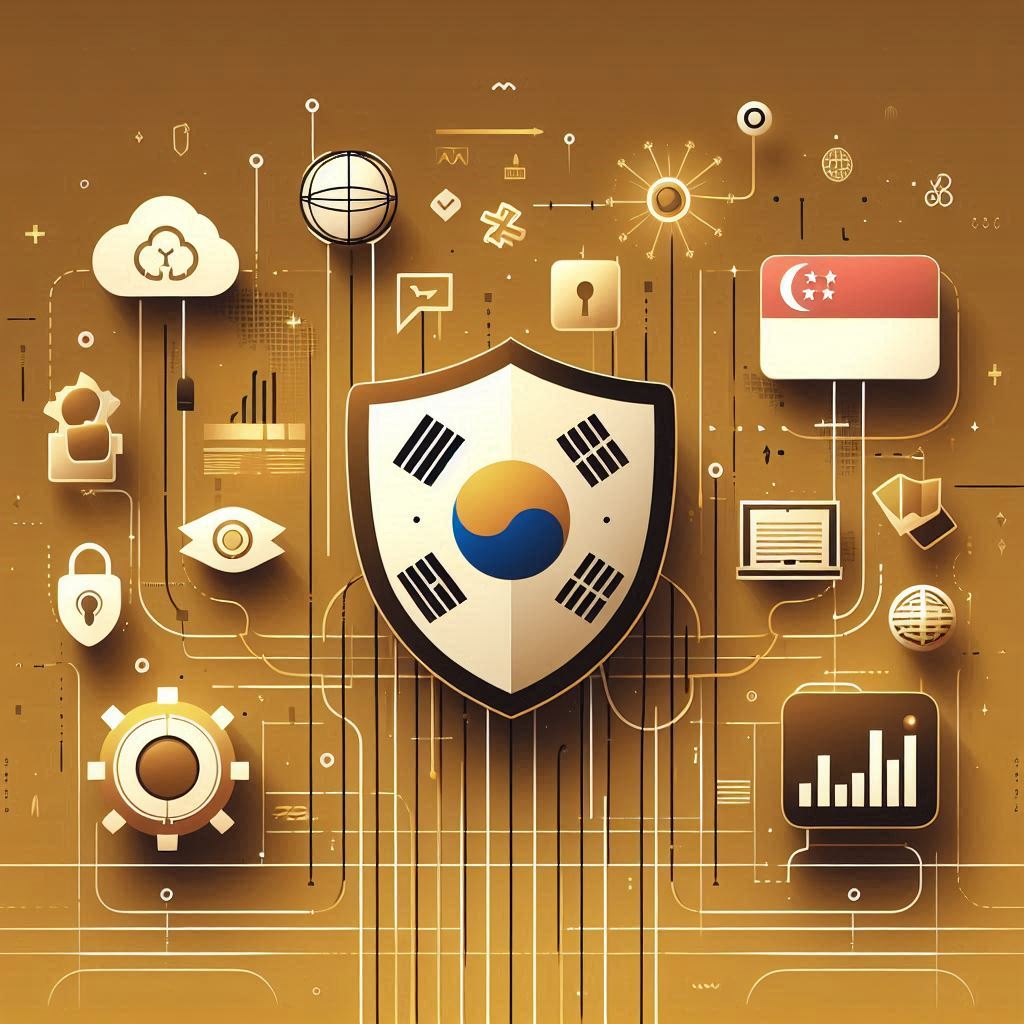South Korea and Singapore Forge a Cyber Shield: A New Era of IoT Security

The rapid proliferation of Internet of Things (IoT) devices has ushered in an era of unprecedented connectivity, transforming the way we live, work, and interact with our environment. However, this digital revolution has also brought with it a host of security challenges, as vulnerabilities in IoT devices can provide entry points for cybercriminals to infiltrate networks and steal sensitive data. Recognizing the growing threat landscape, governments worldwide are taking proactive measures to safeguard their digital infrastructure.
On December 14, 2023, a pivotal step was taken in this direction as South Korea and Singapore, two leading technological hubs, joined forces to enhance IoT security. The Ministry of Science and ICT (MSIT) of South Korea, in collaboration with the Korea Internet & Security Agency (KISA), signed a Memorandum of Understanding (MoU) with the Singaporean Cyber Security Agency (CSA) to establish a framework for the mutual recognition of IoT security certification systems. This groundbreaking agreement signifies a commitment to ensuring that IoT devices operating within critical sectors, including home appliances, transportation, finance, smart cities, medicine, manufacturing, and communications, adhere to stringent security standards.
The Imperative for IoT Security
The escalating complexity of IoT ecosystems has made it imperative to prioritize security at every stage of the device lifecycle. From design and manufacturing to deployment and maintenance, vulnerabilities can arise if proper safeguards are not in place. The consequences of compromised IoT devices can be far-reaching, encompassing data breaches, system disruptions, financial losses, and even physical harm.
Cybercriminals are increasingly targeting IoT devices as they offer a relatively easy entry point into larger networks. By exploiting vulnerabilities in these devices, attackers can gain unauthorized access to sensitive information, manipulate critical systems, and launch large-scale cyberattacks. The high-profile breaches involving IoT devices in recent years have highlighted the urgent need for robust security measures.
The South Korea-Singapore Partnership: A Strategic Alliance
The partnership between South Korea and Singapore is a testament to the growing recognition of the importance of international cooperation in addressing cybersecurity challenges. Both countries have established themselves as global leaders in technology and innovation, and their collaboration is expected to set a new benchmark for IoT security standards.
By agreeing to mutually recognize each other’s IoT security certification systems, South Korea and Singapore are creating a unified front against cyber threats. This approach will streamline the certification process for IoT manufacturers, reducing costs and time-to-market while ensuring that products meet the highest security standards.
Key Components of the Agreement
The MoU between South Korea and Singapore outlines several key components that will underpin the successful implementation of the mutual recognition framework:
- Harmonization of Certification Standards: Both countries will work together to align their IoT security certification standards, ensuring consistency and interoperability. This will involve identifying common security requirements, testing methodologies, and evaluation criteria.
- Mutual Recognition of Certifications: Certified IoT devices in one country will be automatically recognized as compliant in the other, facilitating cross-border trade and reducing regulatory burdens.
- Cooperation in Threat Intelligence Sharing: South Korea and Singapore will exchange information on emerging cyber threats and vulnerabilities related to IoT devices. This collaborative approach will enable both countries to stay ahead of evolving threats and develop effective countermeasures.
- Joint Research and Development: The two countries will collaborate on research and development initiatives to advance IoT security technologies and best practices. This includes exploring new approaches to secure device design, encryption, and vulnerability management.
Impact on the IoT Ecosystem
The South Korea-Singapore partnership is expected to have a profound impact on the IoT ecosystem. By establishing a robust and internationally recognized certification framework, the agreement will enhance consumer confidence in IoT devices. Consumers will be able to make informed decisions about the security of the products they purchase, knowing that they have undergone rigorous testing and evaluation.
Moreover, the partnership will create a level playing field for IoT manufacturers. By adhering to common security standards, companies can reduce the costs associated with multiple certifications and expedite the process of bringing products to market. This will foster innovation and drive economic growth in the IoT sector.
Challenges and Opportunities
While the South Korea-Singapore partnership represents a significant step forward, there are challenges that need to be addressed to ensure the long-term success of the initiative. One key challenge is the rapid pace of technological advancements in the IoT space. Keeping up with emerging technologies and ensuring that certification standards remain relevant will require ongoing collaboration and adaptation.
Another challenge is the enforcement of certification requirements. Effective enforcement mechanisms are essential to deter manufacturers from cutting corners and to protect consumers from insecure devices. Both countries will need to invest in robust inspection and monitoring systems to ensure compliance.
Despite these challenges, the partnership between South Korea and Singapore presents a wealth of opportunities. By working together, the two countries can establish a global model for IoT security that can be adopted by other nations. This would contribute to a safer and more secure digital world for everyone.
Conclusion
The collaboration between South Korea and Singapore on IoT security marks a significant milestone in the global effort to protect critical infrastructure and safeguard consumer data. By establishing a robust and internationally recognized certification framework, the two countries are demonstrating their commitment to creating a secure digital ecosystem.
As the IoT landscape continues to evolve, it is essential for governments, industry, and academia to work together to address emerging challenges. The South Korea-Singapore partnership serves as a prime example of how collaboration can drive positive change and build a more resilient digital future.



